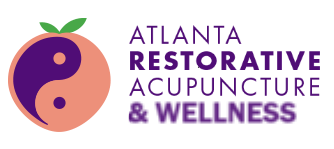Acupuncture for Pain Management
Experience long-term relief with personalized acupuncture treatments designed to manage chronic pain and restore your body’s natural balance.

Understanding Chronic Pain and How Acupuncture Can Help
Chronic pain, which lasts six months or more, can significantly impact your quality of life. It often overly sensitizes the sympathetic nervous system, requiring a specialized approach for effective management. Acupuncture for pain management offers a unique solution by calming the nervous system, reducing pain, and restoring normal function. Unlike conventional treatments that may only mask symptoms, acupuncture targets the root cause, offering long-term relief.


Why Choose Acupuncture for Pain Management?
Targeted Pain Relief
Acupuncture focuses on specific pain points, providing relief by stimulating the body’s natural healing processes.
Reduces Inflammation
Treatments help reduce inflammation and improve blood circulation, which is crucial for pain relief.
Balances the Nervous System
Calms the overly sensitized sympathetic nervous system, addressing the core of chronic pain issues.
Non-Invasive Treatment
Acupuncture is a natural, drug-free method for managing pain, minimizing side effects.

Dr. David Blake Jones
Dipl. Ac. (NCCAOM)®, L.Ac., M.S.P.H., D.A.C.M. NCCAOxM National Board-Certified Acupuncturist™
What Patients Say About Our Acupuncture for Pain Management



Our Comprehensive Acupuncture for Pain Management Process
- Step 1: Thorough Assessment - We start with a detailed evaluation to understand your pain history and identify the root cause.
- Step 2: Personalized Acupuncture Treatment - Using both local and distal acupuncture techniques, we target pain points and stimulate the body's natural healing process.
- Step 3: Perfusion Treatment - This essential treatment stimulates spinal segments to restore blood flow and oxygenation to affected areas, aiding in pain relief.
- Step 4: Calming the Nervous System - We use gentle, superficial needling techniques to calm the overly sensitive sympathetic nervous system, especially for chronic pain patients.
- Step 5: Ongoing Support and Maintenance - Your treatment plan may include botanical formulas, supplements, and stress management techniques like Primordial Sound Meditation to enhance your recovery and prevent relapse.


Our Specialized Programs
After your initial consultation, we use these tailored methods to support your journey to recovery with acupuncture for addiction.
Our Loving Reviews of Acupuncture for Pain Management
Frequently Asked Questions About Acupuncture for Pain Management
How does acupuncture help with pain management?
Acupuncture stimulates sensory nerves under the skin and in the muscles, triggering the release of natural substances like endorphins, which help alleviate pain.
Is acupuncture effective for chronic pain?
Yes, acupuncture is highly effective in treating chronic pain by targeting the root causes and restoring balance in the body. It’s particularly beneficial for conditions such as back pain, neck pain, and osteoarthritis.
How many sessions are needed for pain management?
The number of sessions varies depending on the severity and duration of your pain. Most chronic pain patients benefit from 12 or more acupuncture visits.
Is acupuncture safe for pain management?
Yes, acupuncture is a safe, non-invasive treatment for pain management when performed by a licensed practitioner using sterile, single-use needles.
Can acupuncture replace pain medication?
Acupuncture can be an effective alternative or complement to pain medication, offering long-term relief without the side effects often associated with drugs.
Our TMJ Protocol for Acupuncture Treatment for TMJ Pain Relief
Step 1
TMJ Specific Orthopedic Exam
Baseline Evaluation
Subjective, Objective and Functional Measures that allow you and Dr. Jones to gauge the level of relief and return of normal function.
Identifies deficiencies in the range of motion of head, neck, and shoulder, and inhibitions of muscles affecting the movement of the Tempo-Mandibular Joint.
In addition, includes palpation to identify trigger points that require attention.
Step 2
Treatments
Intra-Oral Massage
Releases inhibition/constriction of Medial & Lateral* Pterygoid (only muscle that opens jaw*) muscles and the attachment of the Temporalis at the Coronoid Process of the Mandible.
This first step is key for it is not possible to needle inside the mouth. Intra-Oral Massage improves the ability to open and close jaw, without pain.
Perfusion Treatment plus Distal Needling
Improves Blood Flow to Head, Neck, Shoulder and Upper extremities and complements the action of Motor/Trigger Point Treatments.
The Perfusion Treatment modality is essential for maintaining the results of the first treatments and for the healing of chronic cases.
Motor Point and Trigger Point Treatment
Releases Inhibited/Constricted Muscles of Head, Face, Neck, and Shoulder.
This modality thus improves the range of motion in these areas and the function of their muscles and joints and relieves pain in all areas associated with TMJ dysfunction.
Soft Tissue Work
These modalities maintain the results of the initial treatments and help to remodel the soft tissue to normalize structure and function.
Herbal Therapy
Complements and extends the effects of Acupuncture treatments, and greatly assists with stress management.
Free TMJ Pain Brochure Download
Download our free TMJ Pain Brochure for the latest information regarding TMJ pain.
What our patients are saying:
“I had been diagnosed with TMJ disorder and despite dental and chiropractic intervention, was experiencing increasing pain and discomfort that interrupted eating, sleeping and work, severely diminishing my quality of life.
David worked miracles. He was very patient with my complaints, offered advice for stretching and breathing exercises between visits and always ensured that I was comfortable during the acupuncture treatment.
His skill and ability certainly helped me to avoid unnecessary surgery and gave me back my life!”
– Dana Ferguson
“I had a painful jaw injury following a dental procedure, and decided to try Acupuncture with Dr. David Blake Jones. He has greatly helped me by decreasing the pain in and improving the movement of my jaw. If you are looking for a warm, genuinely caring and skilled practitioner, Dr. Jones is for you. Plus, he has a wicked sense of humor, an infectious positive energy and a beautiful smile. He is truly dedicated to enhancing your wellbeing. I recommend him with no reservations.”
– Cynthia Cornett
![]()
Did You Know?
The connection between TMJ and head extension.
There is a very important connection between the jaw and the neck. When a person opens his or her jaw, it is normal for the head to extend. However, most TMJ patients have no to only minimal head extension when they open their jaws.
Thus, to relieve the pain and restore the function of TMJ patients, it is important to treat two neck muscles involved in head extension. Acupuncture easily activates these two muscles, with just two needles.
At Atlanta Restorative Acupuncture, Dr. Jones, DACM, LAc determines if their is sufficient head extension, and makes sure to incorporate attention to critical neck, as well as head muscles, into treatment plans.

What to expect during your acupuncture treatment
- Relaxation is key: Settle in for a calming 30-60 minute session where fine needles are gently inserted at specific points based on your individual needs.
- Minimal discomfort: You may feel a slight, momentary sensation during needle insertion, followed by a wave of deep relaxation.
- Personalized care: We tailor each treatment plan to your unique concerns and goals, ensuring a safe and effective experience.
After your acupuncture treatment
- You may feel relaxed or energized. Remember, individual responses vary. If symptoms don't improve within a few weeks, discuss it with your practitioner.


When someone has suffered with pain for six months or greater, the pain is considered a chronic problem. That does not mean the problem is here to stay. However, chronic pain can overly sensitize the sympathetic nervous system, requiring a different approach than if the pain is acute or sub-acute. While every patient is unique, in general, chronic patients benefit more from superficial needling, and treatments and other modalities that focus on calming the sympathetic nervous system. When a provider of Acupuncture treats a chronic pain patient the same as an acute patient, he or she risks creating noxious responses that may at least temporarily exacerbate the patient’s condition.
Thus, while relief of pain is always the ultimate goal, Atlanta Restorative Acupuncture follows an appropriate and gentle process of pain management, focused on the special needs of chronic pain patients. The treatment plan for a chronic patient typically involves 12 or more Acupuncture visits, customized botanical formulas if necessary, appropriate supplements, and optional instruction in an effortless meditation technique, Primordial Sound Meditation, to help with stress management, an often neglected, but crucial component of pain management. These components, taken together, de-sensitize the chronic patient’s overly sensitive sympathetic nervous system, relieve pain, and restore function.
Perfusion Treatment is key for relief of chronic pain
Because chronic pain signals to the midbrain to reduce blood blow to an area of long-term discomfort, it is essential to restore proper blood flow. We need to send a signal to the midbrain, to remind it to send highly oxygenated blood to areas of discomfort and reduced function. We do that via both local and distal Acupuncture, but a crucial tool in that effort is the Perfusion Treatment. Through the latter Acupuncture technique, we gently stimulate the spinal segments that house the nerves that control the flow of blood. Different spinal segments house nerves that control flow of blood to different parts of the body, the upper extremities, the digestive system, and the lower extremities. It perfuses an area that lacks highly oxygenated blood, helping to restore healthy circulation. Healthy blood flow in fact, is the main vehicle for the body’s internal pain relieving traveling pharmacy.
How does acupuncture help pain management?
It involves stimulating sensory nerves under the skin and in the muscles. This results in the body producing natural substances, such as pain–relieving endorphins. It’s likely that these naturally released substances are responsible for the beneficial effects experienced with acupuncture.
Is Acupuncture good for pain relief?
According to the National Institute of Health (NIH), a number of studies suggest that acupuncture works particularly well on chronic pain such as back and neck pain; osteoarthritis/knee pain; and headache. It often reduces the incidence and severity of tension headaches and may prevent migraines

